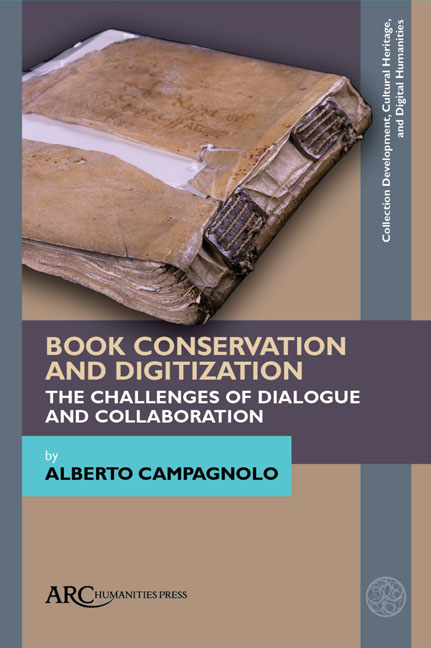Chapter 5 - British Library/Qatar Foundation Partnership and the Digitization Project: A Case Study about Conservation Processes within Mass Digitization of Library Material
Published online by Cambridge University Press: 20 November 2020
Summary
A PARTNERSHIP BETWEEN the British Library and the Qatar Foundation was started in 2012. The Qatar Foundation is a state-run non-profit organization focusing on education, scientific research, and community development, and it is within the context of this partnership that a digitization project was also launched in 2012.
During the first phase of this collaborative project, in October 2014, the Qatar Digital Library— a new, bilingual, online portal providing access to previously undigitized British Library archive materials relating to Gulf history and Arabic science manuscripts— was launched as part of the agreed deliveries of the project.
The project was then extended into a second phase until the end of 2018, with the goal to upload over a million pages of historical material related to the Gulf, in addition to the 500,000 images including maps, photographs, manuscripts, letters, but also audio and video files already undertaken in the partnership's first phase. The BL/QDL Partnership and the Digitisation Project are still running today and plans have been made for further extensions.
The Planning Phases
From the beginning, the conservation strand of the project was rooted in the planning process. A new conservation studio with a team of three conservators was set up within the spaces rented by the Qatar Foundation on the sixth floor of the British Library's main building, where all the people employed to work for the project were placed.
During the first few weeks, contacts were made with other institutions where digitization projects had been previously established. Great support, especially in the scoping for the type of materials and equipment needed, was given by the conservation team involved in digitization preparation at The National Archives in Kew, where Catt Thompson-Baum had been the conservation manager: she generously shared her knowledge acquired in years of dealing with digitization workflows and the conservation preparation requirements.
A very comprehensive document (“Guidelines for Conservation”) detailing the project's policies and procedures, revised many times since then, was also compiled during the first few months of the project.
- Type
- Chapter
- Information
- Book Conservation and DigitizationThe Challenges of Dialogue and Collaboration, pp. 105 - 116Publisher: Amsterdam University PressPrint publication year: 2020



